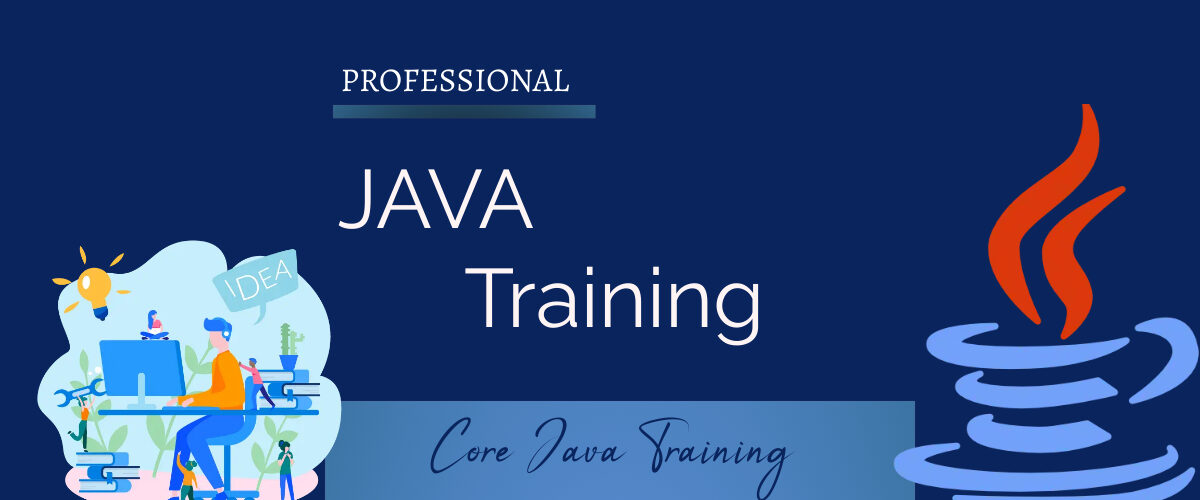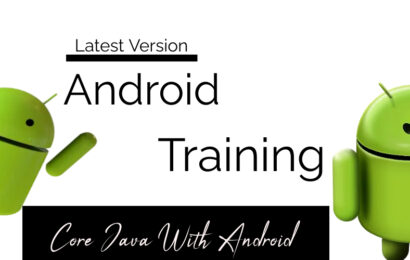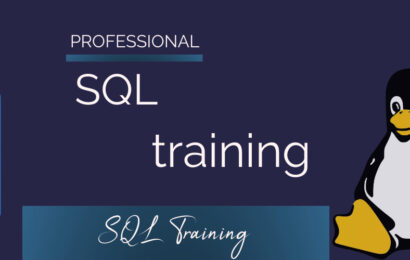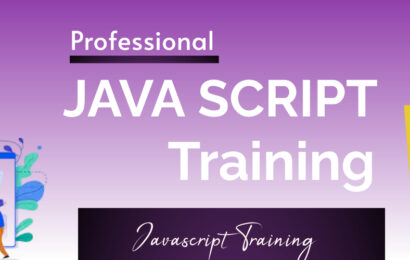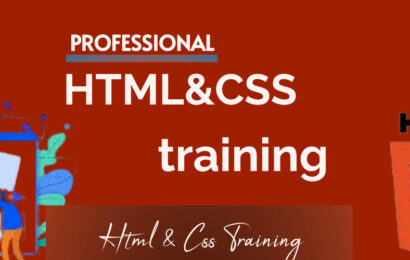Payilagam offers customized Core Java training in Chennai for Individuals and groups. We provide a great platform to learn Java. Java is a popular object-oriented programming language. It is one of the world’s leading development languages. Java is an underlying technology required by many applications and websites and you will find it just about everywhere. At Payilagam, trainees will learn the fundamentals of Java. A perfect approach on Java classes, objects and programming skills to work on live projects. A well-structured course modules and sessions to get evolve the most demanding course in the IT world. Get the Core Java training from the institute that understands learning needs of Individuals! Contact us for the instructor-led training classes in Chennai for Core Java programming and more in depth classes covering intermediate and advanced topics.
Object Oriented Programming Concepts
Introduction
OOP Concepts (Basic + Fundamental of OOP).
Benefits of OOP Programming.
Introduction to JAVA
What is Java
Features of Java.
Advantages of Java.
JDK, JVM architecture.
Setting the class path.
Java Installation
Java Installation
Eclipse Installation
My First Java Program
Sample Java Program
Class
Details about main Method
Data types, Variables and Operators
Java Tokens, Alphabets (Character Set).
Keywords, Java Reserved Keywords, Identifiers, Constants, Datatypes, Operators.
Control-flow Statements
Control-Flow Statements, Decision-Making Statements, Switch and IF else, nested–– if
Conditional Statements
Looping statements – while, for, do.. while and Break, Continue.
Classes and Objects
What is Class, Declaring a class, Rules for Naming Class
Creating an Object, new keyword
Exploring Methods
Method Calling from main() method
Return values from called method
Significance of void, return keywords
Argument Passing, Local Variable, Global Variable
Polymorphism – Introduction
Methods with different no. and type of arguments
Introduction to Polymorphism
Method Overloading – Compile Time Polymorphism
Encapsulation – Introduction
Create one more class in same package– Class 2
Call methods present in Class 1 from Class 2
Significance of Access Modifiers – private, public and default
Encapsulation – Part 2
Create one more class in another package– Class 2
Try to call methods present in Class 1 from Class 2
Significance of Access Modifier – protected.
Inheritance
Need for Inheritance
IS-A relationship
Usage of extends keyword
Simple, Multilevel and Hierarchical Inheritance
Create child class in another package– Class 2
Significance of Access Modifier – protected.
Polymorphism – Method Overriding
Method Overriding
Type Casting
super and this keywords
super() and this() keywords
Constructor
What is Constructor
How Constructor is being called
Rules for Constructor
Constructor Overloading
Getting inputs at runtime
Scanner Class and its methods
Converting all their previous programs with Scanner Class
Arrays
Need for Array
Types of Arrays
Array Declaration – Two Ways
2D, 3Dimension arrays
Int array, char array, String array
Converting all their previous programs with Scanner Class
String
String Class
String declaration – two ways
Heap Memory, String Constant Pool Memory
Difference between String literal and String Object
Difference between == operator and equals method
toString() method, hashCode() method
Abstraction – Introduction
Details about abstract keyword
Abstract Class
Abstract Method
Creating Object for abstract class not possible – Why
Dynamic Binding / Late Binding
Significance of static keyword
Static abstract class not possible – How
Inheritance – Interface
What is Interface
Difference between Abstract class and Interface
Usage of implements keyword
Interface, Sub Interface
Dynamic Binding / Late Binding
Exception Handling
What is Exception
Difference between Exception and Error
Syntax for Exception Handling Mechanism.
try Block, Catch Block, Exception , Checked Exceptions
Catch Block (or) Multiple Catch.
Throw, Throws, The finally Block,
User Defined Exceptions.
Utility Classes – Introduction
Collection Framework
Collection Interfaces
The List Interface and its implementation classes
The Set Interface and its implementation classes
The Queue Interface and its implementation classes
Maps
Map and its class
SortedMap and its classes
HashTable
Utility Classes – List Interface
ArrayList and its methods
LinkedList and its methods
Difference between ArrayList and LinkedList
Iterator Methods
Utility Classes – List Interface – Logical Programs
Getting input from user and Sorting the arraylist
Searching in ArrayList
Replacing element in ArrayList
Utility Classes – Map Interface – Logical Programs
Find duplicate character in a given String using HashMap
Find unique characters in a given String using HashMap
Find count of characters in a given String using HashMap
Generics
Need for Generics
Simple Generics
Subtyping in generics
Packages
Predefined Packages
Userdefined Packages
Multithreading
Threaded Application
Thread states
Runnable interface and Thread class
Thread Priority
Interrupting Threads (sleep(), join())
Synchronization
Intro. About Inter thread communication
SQL Basics
MySQL Installation
SQL Basic Queries
DDL
DML
Introduction to JDBC
The JDBC Connectivity Model
Types of Jdbc Drivers
Database Programming (with MYSQL)
Connecting to the Database
Creating a SQL Query
Getting the Results using ResultSet Interface
Statement and PreparedStatement
Commit and Autocommit, BatchUpdates
ResultSetMetaData and DataBaseMetaData


